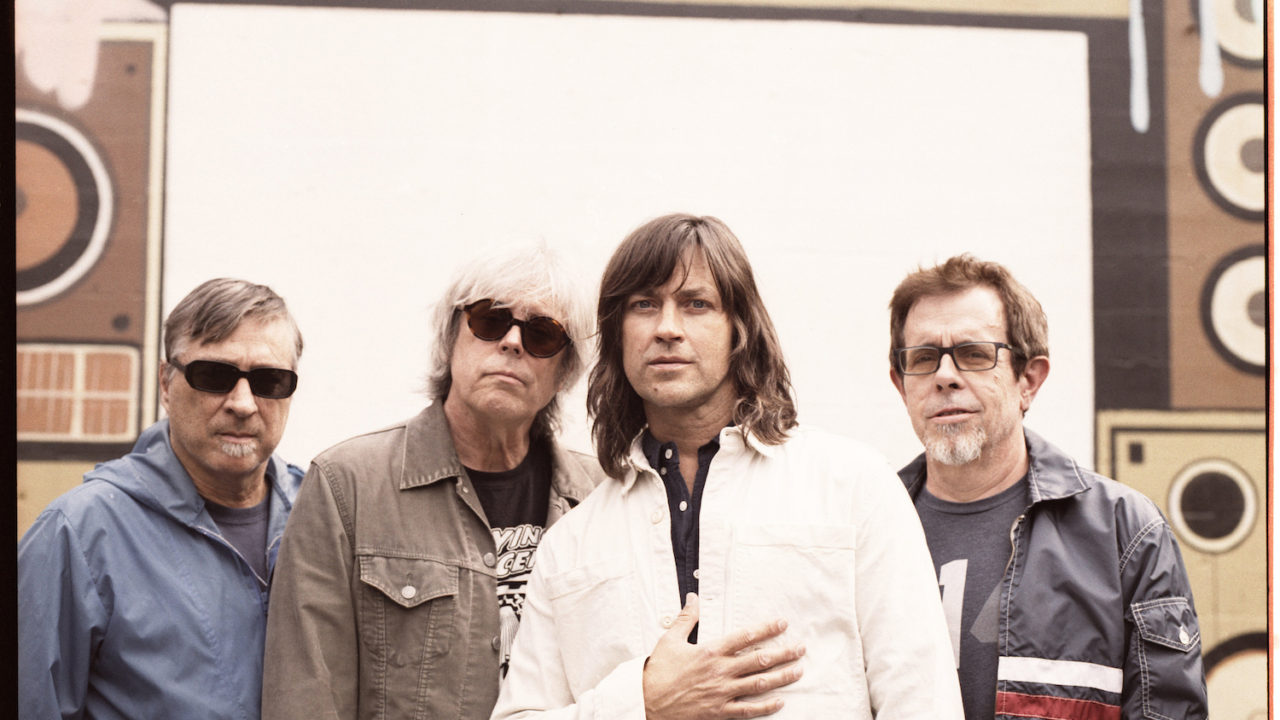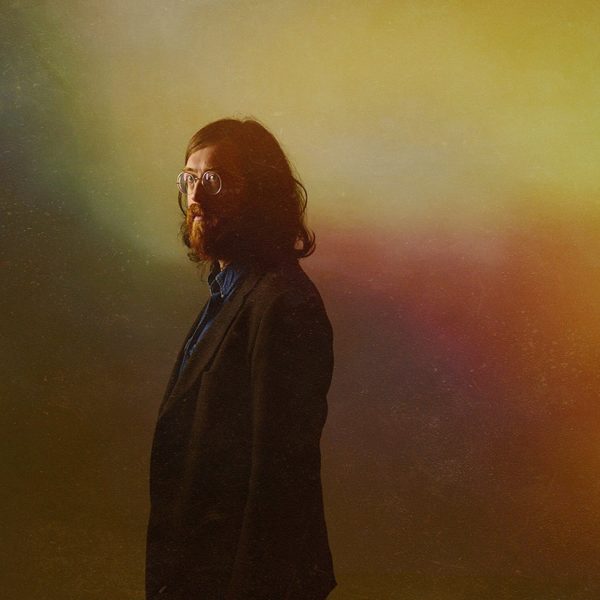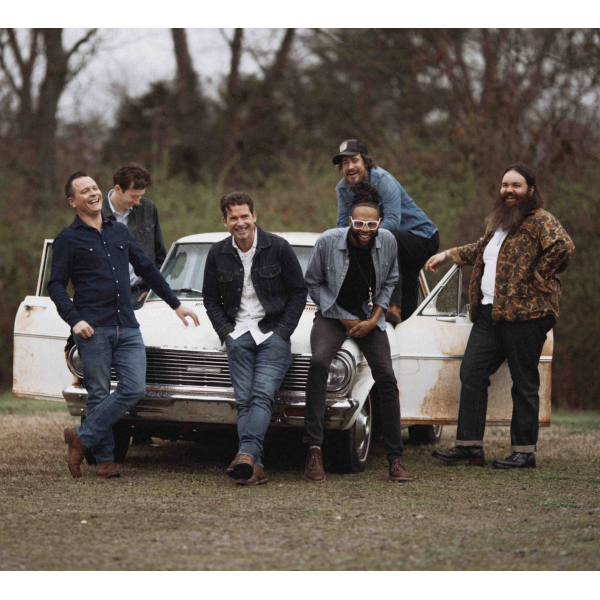
Old 97’s
The thirteenth studio album from Old 97’s, American Primitive arose from what vocalist/guitarist Rhett Miller refers to as a “de-evolution” of the legendary Dallas-bred band. “As much as I want us to calm down and grow up, the songs that felt right for this record were mostly big and loud and brutal and dirty,” says Miller, whose bandmates include bassist Murry Hammond, guitarist Ken Bethea, and drummer Philip Peeples. Arriving just months before the 30th anniversary of Hitchhike to Rhome—a powerhouse debut that played a vital part in pioneering the alt-country genre—the result is a gloriously rowdy body of work, revealing a veteran band more attuned than ever to the raw and reckless energy of truly timeless rock-and-roll.
With its title lifted from a bit of fictional art criticism in Stephen King’s psych-horror novel Duma Key, American Primitive merges its unvarnished sound with the punchy yet poignant storytelling signature to Old 97’s, radiating a rambunctious joy even as Miller’s lyrics contend with complex questions of love and mental illness and the routinely daunting state of the world. Produced by Tucker Martine (My Morning Jacket, The Decemberists, Neko Case) and featuring iconic guest musicians like Peter Buck of R.E.M. and Scott McCaughey of The Young Fresh Fellows and The Minus 5, the album took shape in a series of deliberately whirlwind sessions at Flora Studio in Portland, Oregon. “This was the first record we’ve ever done with zero pre-production,” Miller points out. “It’s us working completely on instinct, leaning on 30 years of playing together to come up with something on the fly rather than overthinking any of our choices.”
Kicking off with the frenzied riffs and restless grooves of “Falling Down,” American Primitive opens on a lyric encapsulating the album’s snarling joie de vivre: “You’ve got to dance like the world is falling down around you, because it is.” Next, on “Somebody,” Old 97’s deliver a thumping punkabilly anthem channeling both desire and doom. “That song came from looking back over my relationship history and acknowledging that I spent a long time as something of a serial monogamist,” says Miller. “As a young man I was in love with the idea of being in love, and I wanted ‘Somebody’ to speak to the hopelessness of exiting a very intense relationship and knowing you’re just going to rush right into the next one.” From there, American Primitive bursts into the breakneck urgency of its title track, a gorgeous entangling of poetic observation and feverishly expressed longing. “I was sitting on the balcony of a hotel in Peachtree, Georgia, watching the sun setting over the forest and trying to identify the trees, and I started writing what began as meditation on nature but eventually turned into a song about missing someone,” Miller recalls. “I wound up taking inspiration from that phrase in the Stephen King novel, which felt like a perfect description for our band and how primitive and unstudied we are.”
Another track born from Miller’s contemplation of the natural world, lead single “Where The Road Goes” slips into a lush and hypnotic reverie, achieved in part through Buck’s arpeggiated 12-string guitar and a trance-inducing drum loop dreamed up by Peeples and Martine. “I was in Montana and found myself on the banks of the Blackfoot River, watching the water pounding with a ferocious power, and I started building this song as a statement of gratitude for having survived this long,” says Miller. “It revisits some of the darkest moments of my life, including a suicide attempt at age 14 that by all rights I shouldn’t have lived through and yet somehow did. In a way it’s like a spiritual travelogue that rolls back through all the places that shaped me for better or worse, and ends up in this beautiful place that I felt so thankful to experience.”
A distinctly literary lyricist who’s authored a number of children’s books and written for publications like McSweeney’s and The Atlantic, Miller threads American Primitive with so much lived-in yet dreamlike detail, such as on the sublimely blistering “Masterpiece” (“So I sank to the bottom of the hotel pool/You drank sunshine like you always do/Then it rained broken glass on your paperback/The ink ran and so did I, never said goodbye/Just fade to black”). “Magic” serves up a jittery piece of power-pop echoing the anguish of grasping for salvation, while “Western Stars” presents an intimate portrait of pained isolation inspired by an epic Alfred Lord Tennyson poem that Miller memorized in high school. Equal parts sprawling rumination and freewheeling joyride, the album also spans from the sweetly skewed whimsy of “Honeypie” (a loping and lighthearted love song featuring McCaughey on piano and Buck on mandolin) to the wistful reminiscence of “By The End Of The Night” (a bouncy psych-folk bop with lead vocals from Hammond, who sums up its narrative as “two people break up, then one of them jumps in front of a train—autobiographical, except for the getting-squished-by-a-train part”). And on “Estuviera Cayendo,” American Primitive closes out with an instrumental reprise of “Falling Down,” beautifully reimagined on flamenco guitar by guest musician Jeff Trapp.
In choosing the cover art for American Primitive, Old 97’s selected a painting created by Hammond’s 17-year-old son Tex Hammond—a prodigious talent who, at age 14, became the youngest artist ever to exhibit at the prestigious LA Art Show. It’s a fitting choice for a band who’ve maintained a certain youthful exuberance more than three decades into their career, and for an album in which a palpable sense of wonder prevails despite its world-weary undercurrent. “Over the last year of touring in celebration of our 30th anniversary, it’s been impossible not feel some emotion welling up at the idea that my bandmates and I have been in this close brotherhood for so long,” says Miller. “I think a lot of that longevity has to do with the fact that we’re really the same band we were back then. We’ve experimented with pushing in different directions, and we’ve had experiences outside the band where we’ve learned new things, but the way we approach this music has fundamentally remained the same. Our heart is still in the exact same place.”
Artist News
- Old 97’s New Album ‘Twelfth’ Out Today
- Old 97’S Return With New Album ‘Twelfth’ Out August 21 + New Music Video
- Old 97’s Holiday Album, Love The Holidays, Out Now
- Rhett Miller’s New Album The Messenger Out Now
- Rhett Miller Announces New Solo Album + Old 97’s Announce Holiday Album
- Old 97’s Celebrate 30th Anniversary with New Album American Primitive Out April 5





